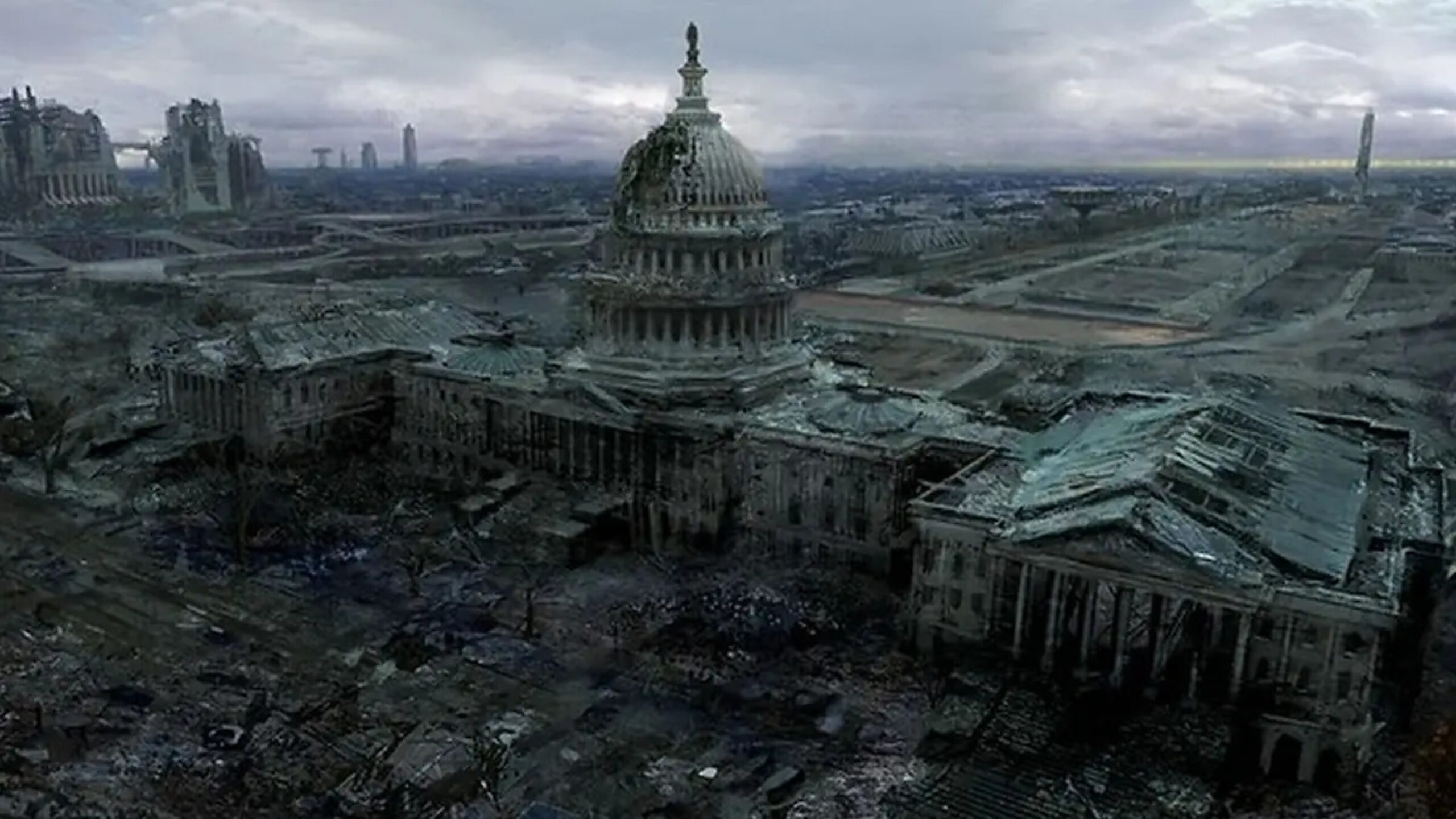
How To Survive A Nuclear Holocaust
In this blog post, we will delve into how to survive a nuclear holocaust – from understanding its effects to practical tips on staying safe and rebuilding in the aftermath. Imagine a world plunged into chaos by the unimaginable devastation of a nuclear holocaust.
The thought alone is chilling, but in today’s uncertain times, being prepared for the worst has never been more crucial. Let’s arm ourselves with knowledge and resilience as we navigate through this daunting topic together.
Understanding the Effects of a Nuclear Explosion
The effects of a nuclear explosion are catastrophic and far-reaching, impacting everything in its path. The initial blast creates intense heat and shockwaves, causing widespread destruction within seconds. Buildings crumble, fires ignite, and lives are forever changed.
Following the blast comes the release of radiation into the environment. This invisible threat can linger for days, weeks, or even years depending on the size of the detonation. Exposure to high levels of radiation can lead to severe health issues such as radiation sickness, burns, and long-term cancer risks.
The aftermath of a nuclear explosion is chaotic and overwhelming. Infrastructure collapses, communication systems fail, and access to resources becomes scarce. Survivors must navigate through this post-apocalyptic landscape while facing unknown dangers at every turn.
Understanding these effects is crucial in preparing for a potential nuclear attack. By educating yourself on what may happen during and after an explosion, you can better equip yourself with knowledge that could potentially save your life in such a dire situation.
Preparing for a Nuclear Attack
Picture this – the looming threat of a nuclear attack is something we all hope to never face, but preparedness can make a significant difference in survival. Start by educating yourself and your loved ones about the risks and necessary precautions. Develop an emergency plan that includes communication strategies and designated meeting points.
Stock up on essential supplies like non-perishable food, water, first aid kits, flashlights, batteries, and any medications you may need. Consider creating a go-bag with these items for quick evacuation if required. Identify potential shelter locations in your area such as basements or underground structures.
Stay informed by following official channels for updates and instructions during a crisis. Practice drills with your family to ensure everyone knows what to do in case of an emergency. Remember, preparation is key when it comes to facing uncertain situations like a nuclear attack.
Survival Tips During a Nuclear Disaster
In the event of a nuclear disaster, staying informed is crucial. Listen to official announcements and follow emergency instructions promptly. Prepare an emergency kit with essentials like water, non-perishable food, first aid supplies, and clothing. Designate a safe shelter area in your home or identify nearby shelters if you’re out.
If outside during a nuclear explosion or fallout, seek immediate shelter indoors. Stay away from windows and cover your nose and mouth with cloth to reduce inhaling radioactive particles. If caught outdoors, find the nearest sturdy building for protection.
Limit exposure by staying inside until authorities deem it safe to go out again. Keep updated through radio broadcasts for evacuation orders or safety precautions. Remember to remain calm and focused on survival strategies during this challenging time.
Finding Shelter and Resources
In the event of a nuclear holocaust, finding shelter and resources is crucial for survival. The first step is to seek underground shelters or sturdy buildings with thick walls to shield against radiation. Look for basements, bunkers, or even subway tunnels as potential safe havens.
Stockpile essential supplies like non-perishable food, water, medical kits, and protective gear in your shelter. Make sure to have a battery-powered radio for updates and communication with the outside world. Consider having tools for self-defense and utility purposes as well.
Scout nearby areas for additional resources such as alternative shelter options, sources of clean water, and potential supplies left behind by others. Stay vigilant but avoid venturing too far from your secure location without proper protection.
Remember that cooperation with fellow survivors can increase chances of long-term survival. Pooling together skills and resources within a community can make overcoming challenges easier during such dire circumstances.
Dealing with Fallout and Radiation Exposure
In the aftermath of a nuclear disaster, dealing with fallout and radiation exposure becomes a critical aspect of survival. Understanding the risks associated with radioactive materials is essential for making informed decisions.
If you find yourself exposed to radiation, seek shelter immediately to minimize further exposure. Remember that time is of the essence when it comes to limiting the effects of radiation on your body.
Protective gear such as masks, gloves, and clothing can help reduce direct contact with contaminated areas. It’s crucial to decontaminate yourself thoroughly after coming into contact with radioactive substances.
Monitoring news updates and following guidance from authorities can provide valuable information on safe zones and evacuation procedures. Stay informed and follow instructions diligently to safeguard your health in a nuclear fallout scenario.
Remember that knowledge is power when it comes to handling radiation exposure effectively. Take proactive measures to protect yourself and your loved ones during these challenging times.
Rebuilding After the Disaster
After the chaos of a nuclear disaster settles, the daunting task of rebuilding begins. Communities shattered, infrastructure destroyed, and lives forever changed. The road ahead may seem insurmountable, but resilience and determination will be your allies.
Reconstruction efforts will require collaboration on an unprecedented scale. Clearing debris, restoring utilities, and creating safe zones are just some of the challenges that lie ahead. Every brick laid and every beam raised signifies progress toward a new beginning.
While physical reconstruction is vital, emotional healing is equally important. Trauma lingers long after the rubble has been cleared. Counseling services and support groups can provide solace in times of despair.
Rebuilding isn’t just about structures; it’s about rebuilding hope for a brighter tomorrow. It’s about forging stronger bonds within communities and finding strength in unity. As you embark on this journey towards recovery, remember that resilience knows no bounds.
Mental and Emotional Preparedness for a Nuclear Holocaust
In the aftermath of a nuclear holocaust, mental and emotional preparedness is just as crucial as physical survival. The shock and horror of such an event can take a toll on your psyche, testing your resilience in ways you never imagined.
Fear, anxiety, and uncertainty may threaten to overwhelm you, but finding inner strength and coping mechanisms can make all the difference. It’s important to acknowledge your emotions and seek support from those around you who understand what you’re going through.
Maintaining a sense of hope amid devastation can be challenging, but focusing on small victories and staying connected with loved ones can help lift your spirits. Practice self-care routines like meditation or journaling to process your feelings and stay grounded in the present moment.
Remember that it’s okay not to feel okay all the time – allow yourself moments of vulnerability while also nurturing a spirit of perseverance. Your mental well-being is just as precious as physical safety during these trying times.
The Importance of Community and Support Systems
In the face of a nuclear holocaust, the importance of community and support systems cannot be overstated. When disaster strikes, having people you can rely on is crucial for survival. Communities coming together can provide strength, resources, and emotional support during unimaginable circumstances.
In times of crisis, neighbors helping neighbors can make all the difference. Building strong bonds within your community before a disaster occurs creates a network of assistance that can help everyone get through tough times. Whether it’s sharing supplies or offering a listening ear, these connections are invaluable when facing adversity.
Support systems outside your immediate circle also play a vital role in coping with the aftermath of a nuclear catastrophe. Organizations like relief agencies and government aid programs offer essential aid and services to those in need. Knowing where to turn for help can ease the burden on individuals trying to navigate post-disaster challenges.
By fostering relationships and establishing support networks within communities large and small, we not only increase our chances of surviving but also strengthen our collective resilience in the face of uncertainty. In times of crisis, unity truly is power.
Conclusion: Hope for the Future
As we navigate the potential threats of a nuclear holocaust, it’s essential to remember that amidst the chaos and devastation, there is always room for hope. By understanding the effects of a nuclear explosion, preparing adequately, knowing how to survive during a disaster, finding shelter and resources, dealing with fallout and radiation exposure, and fostering mental and emotional preparedness alongside community support systems – we can increase our chances of survival.
While the idea of facing a nuclear apocalypse may seem daunting, by taking proactive steps to educate ourselves on survival strategies and strengthening our resilience both individually and as part of a community network, we can face even the most catastrophic scenarios with courage. Remember that in times of crisis, unity is key.
By staying informed, prepared, resourceful,and united in spirit; together we can endure whatever challenges may come our way. Let us embrace hope for the future as we strive to build a safer world for generations to come.



